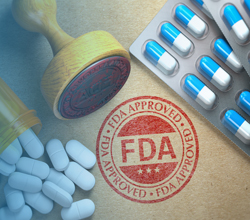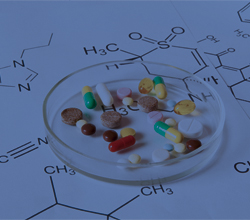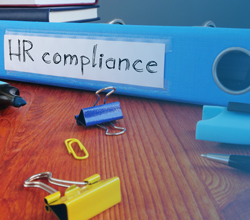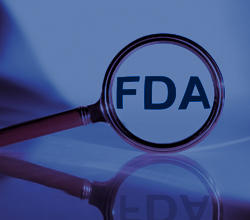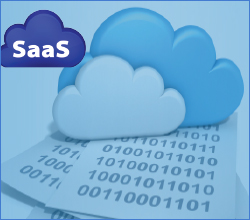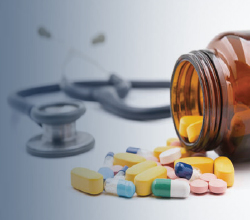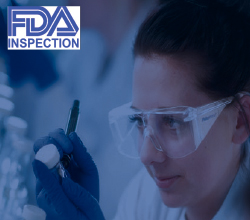
Technical Writing for the Pharmaceutical, Medical Device and Biotech Industries
 Joy McElroy
Joy McElroy
 120 Min
120 Min
Product Id: 704531
This technical writing training program will offer attendees an understanding of how the reporting process supports products in research, development, and in the marketplace. This virtual session will highlight the mandates for documentation set forth by the regulators, such as the FDA, the ISO, and other governing bodies. The program will train attendees on effectively reviewing and revising documents and assessing your audience, in effect producing effective written correspondence.

Computer System Validation and Part 11 Compliance
 Joy McElroy
Joy McElroy
 60 Min
60 Min
Product Id: 705427
This webinar will discuss in detail the requirements of 21 CFR part 11 and updated European Annex 11 regulation including requirements for local, SaaS, and cloud hosting. It will also offer techniques to implement a computer system using risk-based validation to gain maximum productivity and reduce cost by as much as two thirds.

User / Human Factors Engineering Under IEC 62366-1, -2
 John E Lincoln
John E Lincoln
 90 Min
90 Min
Product Id: 705111
This webinar will focus on the Key parts of IEC 62366-1:2015 and -2:2016, Human Factors Engineering and Role in Design Control (21 CFR 820.30)l, Design and Development Planning (ISO 13485 7.3) .

Performing Effective Management Review of the Quality System
 David L Chesney
David L Chesney
 90 Min
90 Min
Product Id: 704933
This webinar will teach you how to conduct an effective management review of the quality system which helps you understand how to plan and focus on right metrics and governed by an efficient process. Participants will also understand FDA policy regarding disclosure of management review information during inspections.

Human Error and Cognitive Load: How to Reduce Memory and Attention Failures
 Ginette M Collazo
Ginette M Collazo
 60 Min
60 Min
Product Id: 704210
This training program will discuss the types of human error, the taxonomy of human error, human error reduction initiatives, individual performance, cognitive load and human error, cognitive load categories, and more.

FDA’s Expectations from Supplier Management for GMP: Quality Agreements and More
 Danielle DeLucy
Danielle DeLucy
 60 Min
60 Min
Product Id: 704659
The FDA requires that manufacturers of pharmaceutical products have a documented process to assess its suppliers and contract manufacturers, that they have implemented that process, and that the process is effective. This training program will explore how having an effective supplier relationship management program will result in streamlining the supply chain, ensuring a more consistent level of quality components, materials and components, and be more cost effective to the manufacturer.

How to write SOP's that Avoid Human Error
 Ginette M Collazo
Ginette M Collazo
 90 Min
90 Min
Product Id: 704418
This training program will address the common human errors and deviations related to the use of procedures. It will also offer best practices for writing SOP’s to reduce the likelihood of human errors.

Root Cause Analysis - The Heart of Corrective Action
 Betty Lane
Betty Lane
 75 Min
75 Min
Product Id: 703391
This webinar will discuss how root cause is an essential part of a corrective action system and will provide some examples of how to perform root cause analysis.

Good Documentation Guideline (Chapter <1029> USP)
 Dr. Afsaneh Motamed Khorasani
Dr. Afsaneh Motamed Khorasani
 60 Min
60 Min
Product Id: 705130
This webinar will familiarize participants with USP Chapter <1029> on good documentation guidelines. This session will wrap up the general concept and will provide information as to what needs to be documented in certain records.

Introduction to Root Cause Investigation for CAPA
 Vanessa Lopez
Vanessa Lopez
 60 Min
60 Min
Product Id: 704409
This CAPA training program will provide an understanding of FDA and ISO requirements, steps in CAPA process and the challenges associated to root cause analysis. Attendees will learn the tools and quality data sources to use during root cause analysis investigation.

Supplier and Service Provider Controls: FDA Expectations
 Vanessa Lopez
Vanessa Lopez
 120 Min
120 Min
Product Id: 704844
This training program will provide regulatory requirements (US) of 21 CFR Section 820.50 (purchasing control) for the medical device industry and illustrate the same with examples. It will furnish details on what purchasing/supplier control management systems should address.

Implementing a Bullet Proof Quality System for FDA Audit Success
 Meena Chettiar
Meena Chettiar
 60 Min
60 Min
Product Id: 705400
This webinar will provide an overview of the FDA expectations in medical device industries for setting up a quality system for FDA audit readiness. It will also provide an understanding of the quality system inspection techniques (QSIT) requirements for documents controls, production and process controls, packaging and labeling controls and more.

Complaint Handling Requirements (US); Interrelationship with CAPA, Change Control, Adverse Event Reporting, Recalls and Life Cycle Process Activities
 Vanessa Lopez
Vanessa Lopez
 90 Min
90 Min
Product Id: 704758
This training program will provide the regulatory requirements (US) for complaint handling in the medical device and pharmaceutical industries. The course will touch on complaint sources, and details will be furnished on the interrelationships regarding complaint handling/change control/adverse event reporting/and recalls. The course will also include timeline requirements associated to adverse event reporting, which reporting formats to use, when to recall and types of recalls.

Sterilization of Pharmaceutical Products and Medical Devices
 Carl Patterson
Carl Patterson
 90 Min
90 Min
Product Id: 705310
This webinar will discuss in detail the methods of sterilization to be used on medical devices and pharmaceutical products including advantages and disadvantages of each method. Also attendees will understand the regulations pertaining to sterilization of products that will help to decide with method to use for their product. Validation of each sterilization method will be discussed and how best to prove to a regulatory body the products being treated are considered sterile.

Making Data Driven Decisions using Statistical Hypothesis Testing
 Steven Wachs
Steven Wachs
 60 Min
60 Min
Product Id: 704211
This training program will cover statistical hypothesis testing concepts including: null and alternate hypotheses, test statistics, p-values, confidence intervals, confidence levels, power, power curves, and sample sizes. Several types of hypothesis tests will be covered such as 1 and 2-sample means tests, tests of variances, and tests of proportions. Equivalence tests will also be discussed. The importance of selecting appropriate sample sizes will be stressed.

4-Hr Virtual Training: How to Respond to an FDA Investigation
 Joy McElroy
Joy McElroy
 4 hrs
4 hrs
Product Id: 704549
This FDA investigation training program will deconstruct best practices for handling unannounced FDA visits, responding to a 483 or a warning letter, and the effect of an FDA investigation. The program will also discuss basic concepts that should be employed by everyone regulated by the FDA and define processes for preparing for FDA audits.

New and Expected Guidance’s on Data Standards and Electronic Submissions for Drugs and Medical Products
 Angela Bazigos
Angela Bazigos
 90 Min
90 Min
Product Id: 704529
This training program will examine the approval process for drugs, biologics and devices and elaborate FDA submission requirements and guidances. It will also discuss electronic regulatory submission and gateway for FDA and FDA eCTD guidance and specifications.

Process Challenge Device Development for EO Sterilization
 Gerry O Dell
Gerry O Dell
 90 Min
90 Min
Product Id: 703443
This webinar will discuss the role of Process Challenge Devices (PCDs) both during ethylene oxide (EO) validation and during routine processing. It will explain the difference in requirements for PCD during both the processes.

Risk Analysis in Medical Device Design
 Charles H Paul
Charles H Paul
 60 Min
60 Min
Product Id: 704803
This webinar will discuss the regulatory requirements and the processes, tools and techniques for conducting an effective risk and hazard analysis for medical devices as per FDA, FTA, FMEA, and FMECA guidelines.

FDA Regulations for Environmental Monitoring (EM) Program
 Joy McElroy
Joy McElroy
 90 Min
90 Min
Product Id: 704377
This training program on applicable regulations pertaining to clean room environmental monitoring (EM) programs will discuss the basics of setting a robust and effective EM program. The course will also detail the relationship between an EM Excursion Program and CAPA and the four phases of clean room transitional monitoring.

